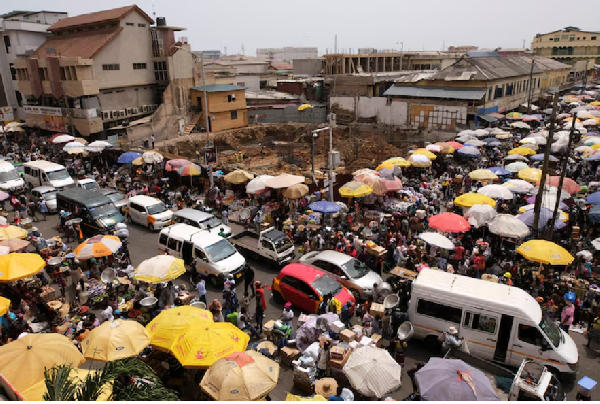On Thursday, May 1, 2025, Ghana will once again observe May Day as a statutory public holiday. As is customary, many workers will leave their offices by noon on Wednesday, with some not returning until the following Monday.
This pattern, common for holidays falling on a Tuesday, Wednesday, or Thursday, results in significant productivity losses. These midweek holidays disrupt workflows, as employees often extend their time off by traveling or taking additional unofficial leave, effectively turning a single holiday into a multi-day break.
To address this challenge, we should consider realigning our public holidays to fall on Mondays, fostering long weekends that boost both economic activity and worker well-being while minimizing disruptions to productivity.
The Economic Cost of Midweek Holidays
The problem of midweek holidays is not unique to May Day. When holidays like Founder’s Day, Kwame Nkrumah Memorial Day, or Constitutional Day fall on a Tuesday or Thursday, some employees may take the adjacent Monday or Friday off, creating an extended break. For instance, a Tuesday holiday might prompt workers to leave early on Monday or not return until Wednesday, while a Thursday holiday could lead to absences stretching into the following Monday.
This behavior, while understandable, reduces productive hours, disrupts business operations, and strains economic output. Public holidays falling midweek can reduce GDP contribution from sectors like manufacturing and services by up to 2% for the affected week, as businesses face lower output and increased absenteeism.
Economic Benefits
Beyond boosting productivity, realigning holidays to Mondays offers social and economic benefits. Long weekends provide workers with opportunities for rest, family time, and travel, improving mental health and work-life balance.
Studies from the World Health Organization (WHO) suggest that extended weekends reduce workplace stress and burnout, potentially lowering healthcare costs.
Economically, the tourism sector could see significant gains, as Ghanaians are more likely to visit local attractions or hometowns during long weekends. For instance, a 2023 study by the Ghana Tourism Authority found that domestic tourism spending increased by 12% during three-day weekends compared to single-day holidays.
This additional revenue could support small businesses and create jobs in rural areas
Learning from Global Practices
Several countries have successfully addressed this issue by scheduling public holidays on Mondays, creating long weekends that benefit both workers and the economy.
In the United States, holidays like Memorial Day, Labor Day, and Martin Luther King Jr. Day are fixed on Mondays, ensuring minimal disruption to the workweek. Similarly, Canada observes holidays such as Victoria Day and Canada Day on Mondays when they do not fall on their exact dates.
The United Kingdom, Australia, and New Zealand also adopt this approach for holidays like Bank Holidays and Anzac Day. Research from the OECD shows that long weekends encourage domestic tourism and consumer spending, with countries like Australia seeing a 5-7% increase in retail and hospitality revenue during such periods.
For Ghana, aligning holidays with Mondays could stimulate demand in tourism, retail, and transportation sectors, as workers use the extended weekend to travel or engage in leisure activities.
Balancing Tradition and Flexibility
Not all holidays can or should be shifted. Fixed-date holidays tied to cultural, religious, or historical significance—such as New Year’s Day, Independence Day, Eid-ul-Fitr, Eid-ul-Adha, Good Friday, Christmas Day, Boxing Day, and Farmers’ Day—must remain on their designated dates to preserve their meaning.
However, other holidays, including Constitutional Day, May Day, Republic Day, Founder’s Day, and Kwame Nkrumah Memorial Day, are more flexible and could be realigned to Mondays without losing their significance. For example, Constitutional Day, currently observed on January 7, could be moved to the second Monday in January.
May Day could become the first Monday in May, Founder’s Day the first Monday in August, and Kwame Nkrumah Memorial Day the third Monday in September. Such changes would create predictable long weekends, reducing the likelihood of employees taking additional days off and ensuring a more consistent workweek.
Way forward
To implement this reform, Parliament could amend the Public Holidays (Amendment) Act, 2019 (Act 986) to designate specific Mondays for these movable holidays.
The precedent already exists: Farmers’ Day is fixed as the first Friday in December, demonstrating that holidays can be scheduled for consistency. A similar approach could be applied to other holidays, with clear guidelines ensuring that fixed-date holidays remain untouched.
the Ministry of Tourism, Arts, and Culture could promote domestic tourism packages tied to these long weekends, maximizing economic impact.


